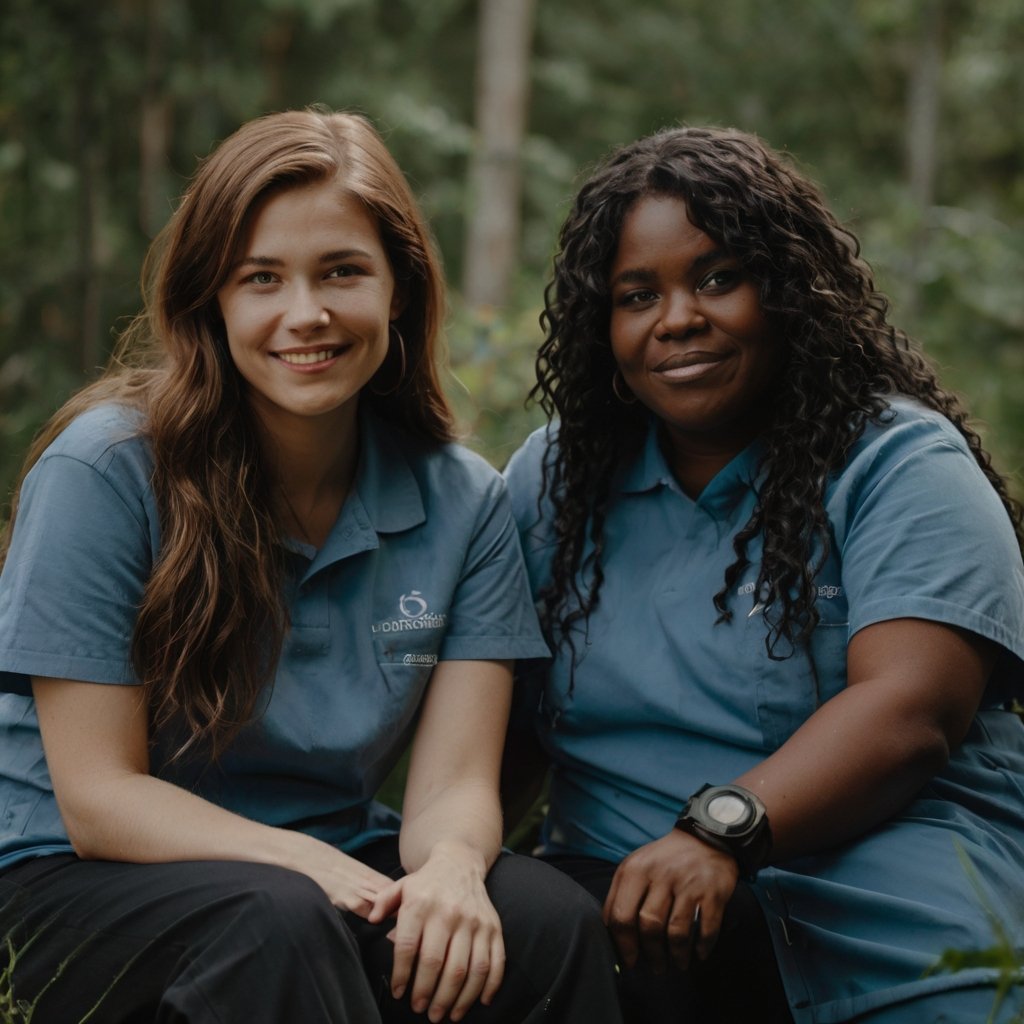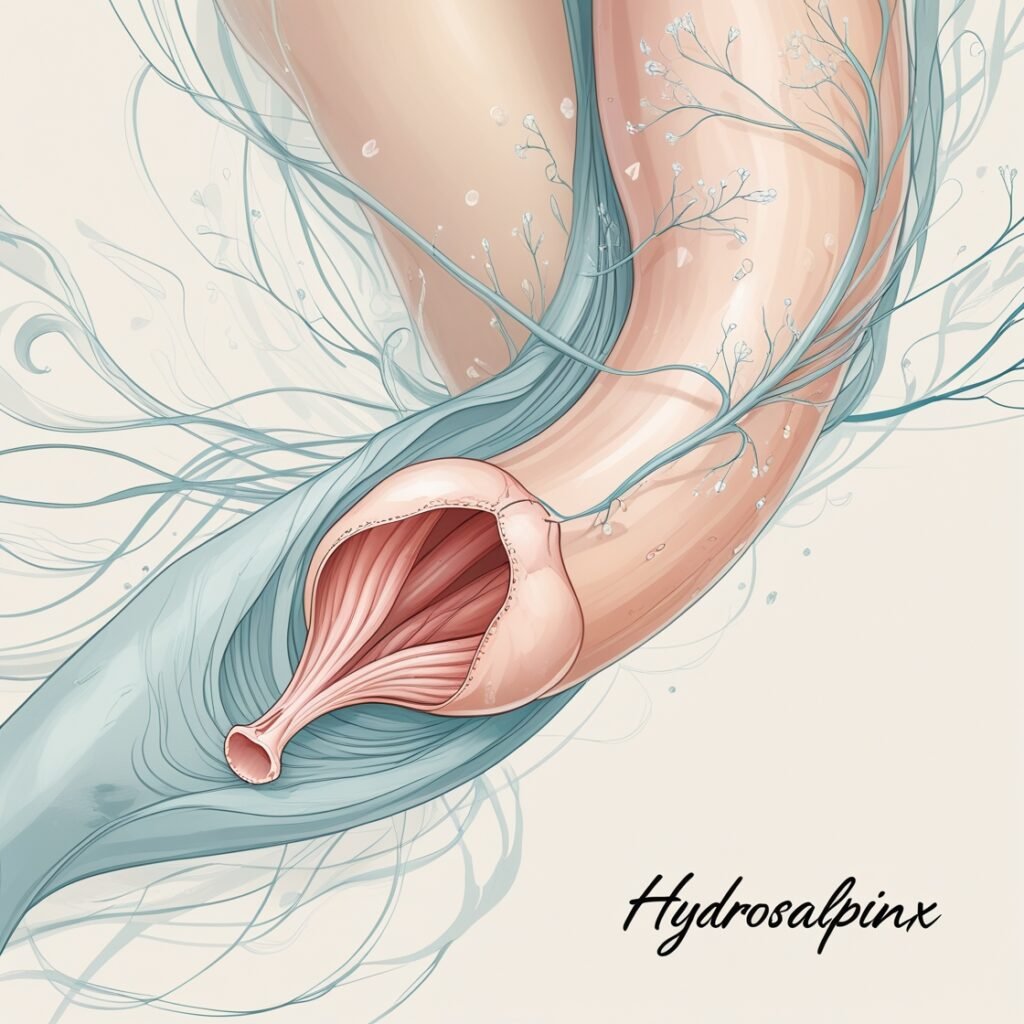Hydrosalpinx is perhaps the most perplexing and emotionally exhausting medical condition. Numerous women undergo reproductive issues due to this disease, which is characterized by fallopian tube inflammation. Yet the experiences of women who have endured hydrosalpinx can be worthwhile in providing us with the capacity to comprehend, accept, and ultimately triumph over this obstacle. In this exploration, we examine the personal narratives of several women who have faced the challenges posed by hydrosalpinx, illuminating their experiences, modifications in their daily lifestyles, and the insights acquired throughout this journey.

The Initial Shock and Acceptance
Maria, a 32-year-old marketing executive from California, clearly recalls the day she received her diagnosis. “I could barely register the information when my doctor uttered the word ‘hydrosalpinx.‘ It was so unfamiliar to me, and I already felt such a devastating sense of loss before I even knew what it was,” she said. Maria’s experience began with persistent pain and confusion about her inability to conceive.
Her everyday life took a dramatic turn after the diagnosis. Maria, once unconcerned about her well-being, now occupied her days reading numerous articles and medical journals about hydrosalpinx and fertility. “I wanted to be an expert in my condition. I felt empowered by knowledge, even if it was initially daunting.” She started going to online and local support groups, realizing she was not alone in her struggle.
These support groups became part of her daily routine, offering not only information but emotional support as well. “Listening to other women’s experiences helped me work through my emotions. I came to realize slowly that it’s okay to grieve my perceived future; however, it’s also essential to have hope,” she went on.
Here are five support groups and resources for individuals dealing with hydrosalpinx and related fertility challenges:
RESOLVE: The National Infertility Association
RESOLVE offers support groups, educational resources, and advocacy for those facing infertility and related conditions. They have local and online support groups where patients can share experiences and coping strategies.
This UK-based organization provides support to those experiencing fertility issues. They offer forums, local support groups, and peer support services to help individuals connect with others facing similar challenges.
The Infertility Survival Handbook Community
Besides providing a wealth of information through their book and website, they also offer an online community where users can share stories, advice, and support focusing on fertility challenges, including hydrosalpinx.
A UK-based online forum that provides a community platform for those dealing with fertility issues, including hydrosalpinx. Members can share experiences, ask questions, and give support to one another.
There are many private Facebook groups specifically focused on fertility issues, including hydrosalpinx. These groups allow users to post questions, share their experiences, and find encouragement from a like-minded community. Searching for terms like “Hydrosalpinx Support Group” or “Infertility Support” can yield various options.
Additionally, local hospitals or fertility clinics often have information on nearby support communities.
For Sarah, a 28-year-old schoolteacher in New York, treating her hydrosalpinx involved walking through the not always gray area of treatment. When she was diagnosed, she initially chose to have surgery to remove the affected fallopian tube. “I thought it was the quickest way to get my body right again,” she explained. “But surgery introduced complications of its own.”
Each phase of her healing journey necessitated changes in her lifestyle. Sarah started doing yoga as a means to manage her stress after feeling anxious about her fertility. “I didn’t want to be a victim of my condition. I had to take back my body and my life,” she said.
But the road to recovery was complicated and tough. Sarah faced a string of setbacks, including infections and operation complications. “There were days when I felt defeated and wondered if I’d ever become a mother,” she conceded. To deal with these, she started to write about what was happening, documenting the setbacks as well as the tiny triumphs. “Writing was a therapeutic outlet; it helped me to express feelings I couldn’t discuss with anyone else.”
Embracing Alternative Paths
For Jessica, a 35-year-old entrepreneur in Austin, hydrosalpinx represented rethinking plans to become a mother altogether. After weighing her choices, she and her partner decided on IVF. “It wasn’t the path I envisioned, but it was the path that was presenting itself,” she explained.
Jessica’s experience entailed a major shift in her lifestyle. She paid attention to diet and general health to get her body ready for the impending treatment. “I ate healthier, exercised every day, and even meditated to keep my mind clear. I wanted to make sure that I was doing everything that I had control over,” she explained.
Her life every day was a balance of treatments, appointments, and mindfulness exercises. “Yes, it was tiring; however, it also gave a sense of routine. I enjoyed cooking new healthy foods and sharing them with my partner. It became a bonding experience.”
Miraculously, her persistence paid off; Jessica happily gave birth to a beautiful baby girl after a successful IVF cycle. “The experience taught me the value of resilience. While every woman’s journey is unique, we all desire the same thing: understanding and support,” she commented.
Words of Encouragement
These women’s journeys have in common the theme of hope, strength, and adaptability. From their experiences, we learn that people appreciate the value of self-advocacy, support systems, and mental well-being in coping with hydrosalpinx’s predicaments.
As Maria, Sarah, and Jessica discovered, it is entirely normal to have a vast array of feelings—sadness, anger, hope, and love. These events are not merely a collection of medical journeys; rather, they are an intensely human tale of personal growth and self-discovery.
If you or a loved one is navigating the same challenges, you are not alone. Reach out, open up, and bridge with others who have traveled your road. Together we can transform loneliness into togetherness.
Join the Conversation
We encourage you to share your own tale of hydrosalpinx or any challenges related to it in the comments section below. If you have experienced hope through unconventional treatments or support networks, your testimony can bring hope to others who are going through the same thing. Let’s create a community where we can uplift one another and exchange information, for it is often in our collective stories that we are healed and made strong.
Your voice matters—let us together raise awareness and support for those going through the complex procedure of hydrosalpinx. Together, we can build a supportive community that promotes resilience and hope.


